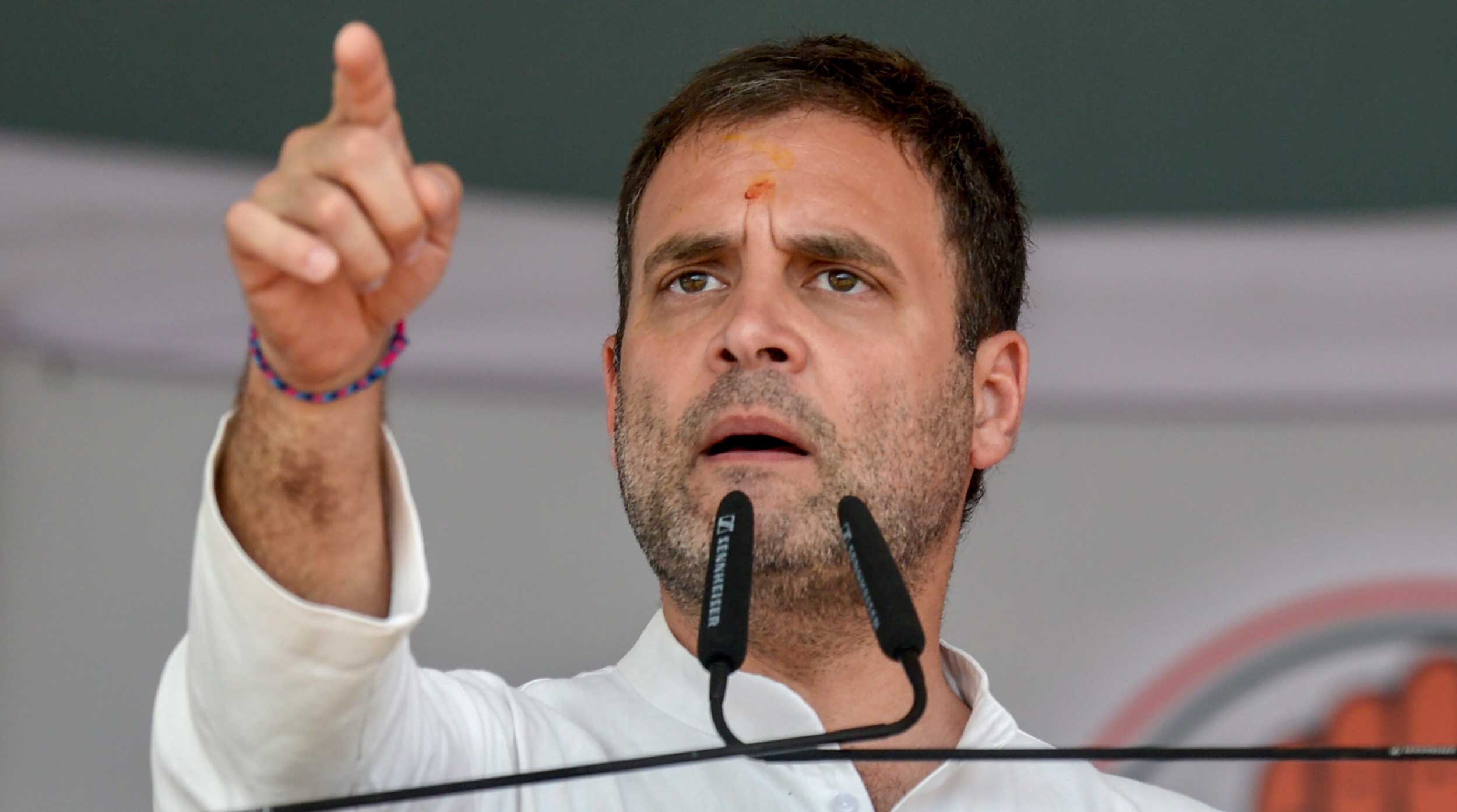The Congress has composed a slogan emphasising its long history, wide reach and experience in governance, subtly indicating that no other party has the expertise or credentials to run the country.
“Jan-jan se naata hai, sarkar chalana aata hai (We have ties to every citizen, we know how to run a government),” goes the slogan.
Aware that the “Gujarat model” of governance whose aura had swept Narendra Modi to power has little credibility now, the Congress wants to remind the country of its role in the freedom movement and the subsequent nation-building processes to win back the people’s trust.
By invoking its decades-long relationship with people across the country and flaunting its governance bona fides, the Congress is also quietly claiming a higher ground for itself compared with its possible competitors for power from within the Opposition.
Also, while the party’s campaign messages speak overtly about issues more than personalities, they — particularly the visual elements — subtly project Rahul Gandhi’s leadership. Rahul’s pro-poor politics, simplicity and easy connect with the masses are the un-stated subtext in the videos and hoardings
A short film, to be shown extensively on electronic and digital media platforms, focuses on the legacy Rahul has inherited.
It tracks the Congress’s record in governance from Jawaharlal Nehru via Indira Gandhi to Manmohan Singh, presenting a counter to Modi’s charge that nothing good happened in the 70 years before he became Prime Minister.
Congress publicity committee chief Anand Sharma underscored this record when asked to justify the campaign’s focus on “justice”.
“We have always been committed to justice. Our contribution to the nation-building processes bears testimony to that,” he said. “(Framing) the Constitution was the greatest justice. Even during UPA rule, we gave (the people) the Right to Information, MNREGA (rural job guarantee scheme), Food Security Act and the Right to Education. We have always responded to the ground realities. Through the (promised) minimum income guarantee, we are only aligning with the people’s sentiments.”
Asked how relevant the emphasis on governance and justice would be in an atmosphere of hyper-nationalism, Sharma said nationalism was “not Modi’s monopoly”. “Our credibility has evolved over decades. Modi doesn’t know history. We have divided Pakistan, fought terror successfully and sacrificed two Prime Ministers,” he said.
“It’s better if Modi doesn’t use nationalism to divert the people’s attention. We have proposed Nyay (acronym for the minimum income guarantee scheme, a word that also means ‘justice’) only in response to the anyay (injustice) of the past five years.”
Party communications chief Randeep Surjewala said: “Modi should explain why he is opposed to Nyay. Why is he angry if Rs 72,000 is to be given to the poorest of the poor? He is making a mockery of the poor and their needs by opposing our scheme.”
He tauntingly referred to Modi as “Prachar Mantri” (publicity minister) and “Paridhan Mantri” (attire minister) --- a pun on Modi’s actual designation and a reference to the expensive outfits he has often been seen wearing.
“The Prachar Mantri who spent thousands of crores of the public’s money on self-publicity and the Paridhan Mantri who keeps changing his clothes throughout the day wasted thousands of crores on his foreign tours,” he said.
“But he can’t tolerate money being given to the poor as he is intoxicated with power and his priorities are wrong. He can happily spend Rs 1 lakh crore on a bullet train between Ahmedabad and Mumbai but can’t address the concerns of the poor.”
In the context of Modi’s tendency to portray the Congress as “pro-Pakistan”, Surjewala highlighted the Prime Minister’s own gestures towards the neighbouring country.
“Why did he go to Pakistan uninvited to celebrate (then Prime Minister Nawaz Sharif’s) birthday and attend (a) marriage (in his family)? Why was the (Pakistani military intelligence agency) ISI called to Pathankot to probe the attack by terrorists? We challenge Modi to come to any platform to debate policies and programmes,” he said.











